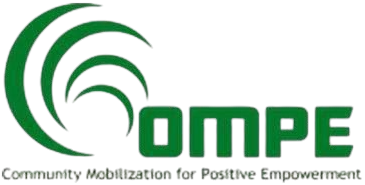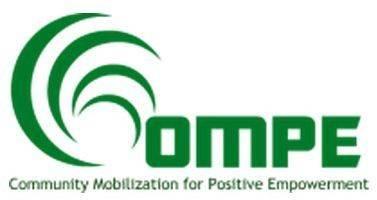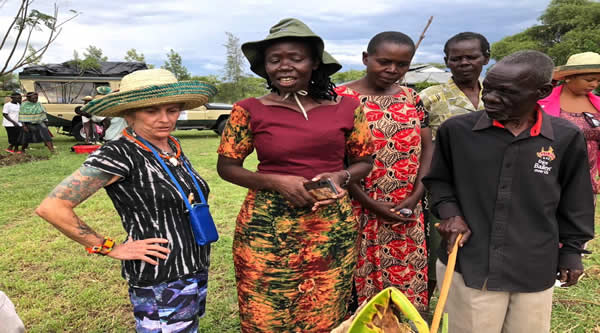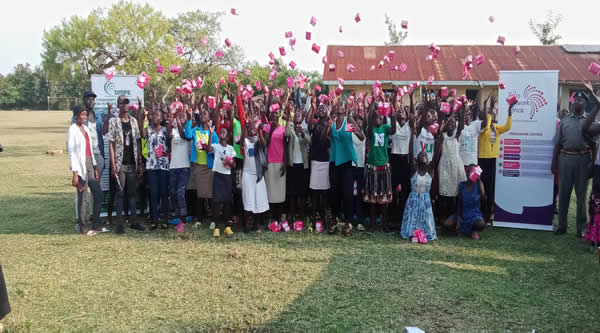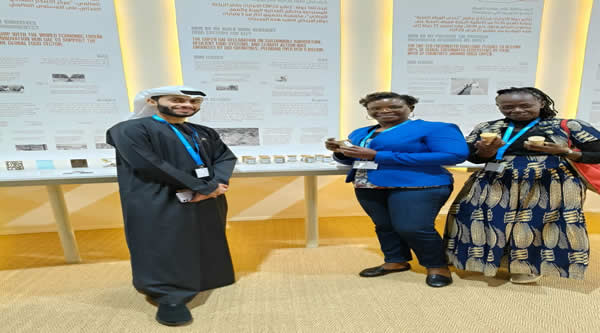+254711772013 E-mail:info@compekenya.org
This initiative targets community members, actively involved in petty trade and subsistence farming by creating an income and alternative livelihood options. Targeting close to 100 beneficiaries the initiative encourages group savings by contributing Kshs 200 per person with Kshs 100 for development loans repaid at an interest rate determined by the groups, Kshs 50 for welfare and Kshs 50 for emergencies
and other issues. The grants are used for business loans and education with women currently involved in small business and starting to live decent lives. The initiative also aims at establishing a revolving community fund where the larger community will be able to access soft loans at reasonable interests.
The women are trained on group dynamics, leadership, the concept of savings and loaning, business management skills. The groups save for a period of one year and thereafter use the proceeds to start small business there by reducing the limited resources, sex for fish menace and widow inheritance, asset control and ,hence reducing the impact of HIV/AIDS in the lake region. We also intend to start school
savings clubs for the children economic empowerment. COMPE programs team training on soap making in Kenya Community Water and Sanitation The initiative with support from VGIF and GWWI targets vulnerable households with capacity building on community hygiene, water treatment at house hold level,
entrepreneurial skills in soap making technology and toilet digester. We have trained 3 women groups with 25 members each. We also train women on water harvesting techniques and construction of composting toilets local youths and women are trained on how to make blocks using the ISSB technology that is environmentally friendly using solar for curing as opposed to the traditional bricks that require firewood for curing hence destroying the environment it will also be a source of income for the
groups once they start sale of the blocks. We have trained 20 Trainer of trainers (TOTs) who have trained 40 . The initiative also focuses on harnessing solar energy coupled with the fireless cooker to cook which is a key resource along the Lake Region and Western Kenya this will reduces use of fire wood hence environmental conservation and will also reduce diseases caused by inhaling smoke. COMPE has benefited from the East Africa training program implemented GWWI on Water and sanitation ISSB technology to construct water tanks and toilets, this has seen, the staff being trained and the community benefit. It has not only reduced the distance to fetch water but has improved access to safe clean water, reduced
incidences of disease and girl child education enhanced. 100 households have benefited from the water kiosk built in collaboration with SI Maseno Club Kisumu.
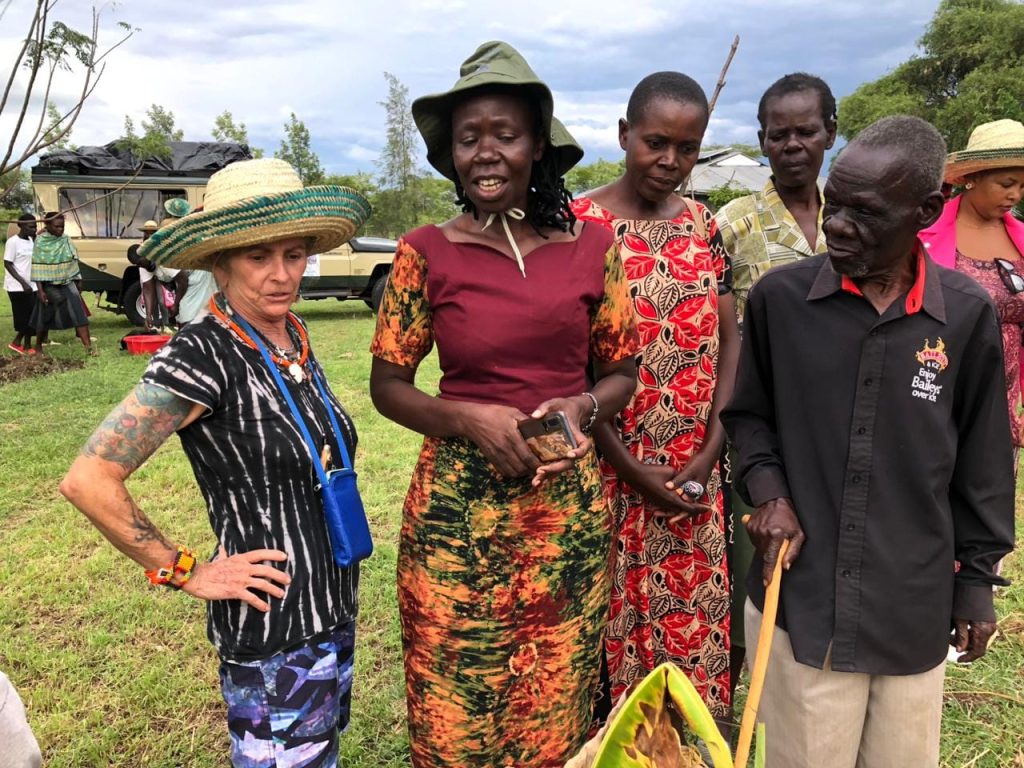
Women constructing ISSB water tank Accessing water from a water kiosk Girl Child Education & Sanitary towels We believe in promoting the realization of the right to free and compulsory education for all children in Kenya, with extra focus on girl child and most vulnerable children in the target community by addressing one of the major causes of poor education for girl’s which is lack of sanitary towels. Most girls miss out of school at least 7 days per month due to menstrual problems. The initiative engages women and girls in sex & reproductive health and life skill sessions. We support one secondary school with
sanitary towels, creating access to sanitary towels for vulnerable girls’ and learning materials. We also have the female members of the organization do motivational talks to the girls during the distributions while engaging in sporting activities for skills building for young vibrant leadership. 3500 reusable towels distributed to girls.
Rosemary with class 8 girls of Nyabera and ST Simeon’s Barogwal primary after receiving exam materials and life skill session.Exam materials and sanitary towels for Schools Food security and Environment This initiative targets to improve household food security and Nutrition status for vulnerable households through organic farming, environmental conservation and tree planting .The project capacity builds farmers to grow traditional vegetables in small kitchen gardens and organic farms with spices and medicinal plants and high value agricultural crops with funding from AWDF . We also train on story gardening in recycled sacks and shed net technology, simple micro irrigation using buckets drips
and bottles as well as engage school health and agriculture clubs. This initiative will link with the intended composting toilets project to generate organic manure for farming. The farmers are trained on making organic pesticides and manure using the locally available materials we also engage in tree planting activities for environmental conservation.
Farmers being trained on tree planting and laying of nurseries for horticulture production
on raised bed Community Dialogues /HIV /AIDS Awareness Community Dialogue session COMPE believes in process that are community driven and owned, we believe in building the capacity of communities to participate and be involved in their development agenda through community capacity building forums to discuss issues affecting the community and what can be done .We draw our approach from proven
transformative methodologies that are participatory, train community own resource persons who spearhead the community process guided by trained Trainers of Trainers. Communities develop a voice to improve service delivery create ownership and sustainability. This is also used as a key forum for advocacy to champion human rights and HIV /AIDs, helping to break the silence in schools and community at large
during community dialogue sessions. We use Community Conversations as the foundation platform for all our programs. We have conducted PICD trainings for GWWI in Kampala and Kisumu. We also offer trainings in., Community dialogue, Agriculture trainings with emphasis on Value addition and Nutrition aspects. Networking, Collaborations & Advocacy. We believe in effective and efficient networking, collaborations and advocacy to promote good governance and protection of human rights and strive to create enabling environments for real social and economic change through advocating for institutional
reforms and capacity build community to be heard and advocate for change at all levels of development. We have and are establishing networks and collaborations with Government relevant ministries and other development partners for sustainable development
Achievements: Training of Trainers of Trainers on community conversations, member of the team that developed of the Concern CC training manuals first and second editions, distribution of Exam materials to 200 boys and girls and reusable sanitary towels to 280 girls, successfully implemented village savings scheme in one village, trained 50 women living with HIV/AIDS on food security and nutrition, kitchen gardening and agro forestry over 200 women inmates trained on menstrual management, 3500 reusable towels distributed, constructed 15 ISSB water Tanks and installed 6 Bio sand filters in school 7 double composting pit latrines. Strategies: COMPE uses three key strategies to implement program: Community capacity enhancement (CCE) which has two aspects: participatory integrated community development (PICD) and Community Conversations (CC). Community Conversation (CC) is an interactive process which brings people together and engages communities to discuss and explore the underlying causes fuelling a
problem in their environment. CC is explicitly based on the recognition that people have capacities, knowledge and resources to transform individually and collectively once they perceive ownership of a problem. The aim is to deepen a community’s understanding of their situation, facilitate decision making and taking action in the local context. Conversations will be held among youth adults and other vulnerable groups. Lobbying and Advocacy as a strategy to improve the ability of communities to do
lobby and advocacy on their identified needs, plan and implement development initiatives and to operate and maintain whatever assets that are created in their community. Collaboration and partnerships by initiating partnerships with communities, organizations, other development agencies and Government line ministries through applied research.
